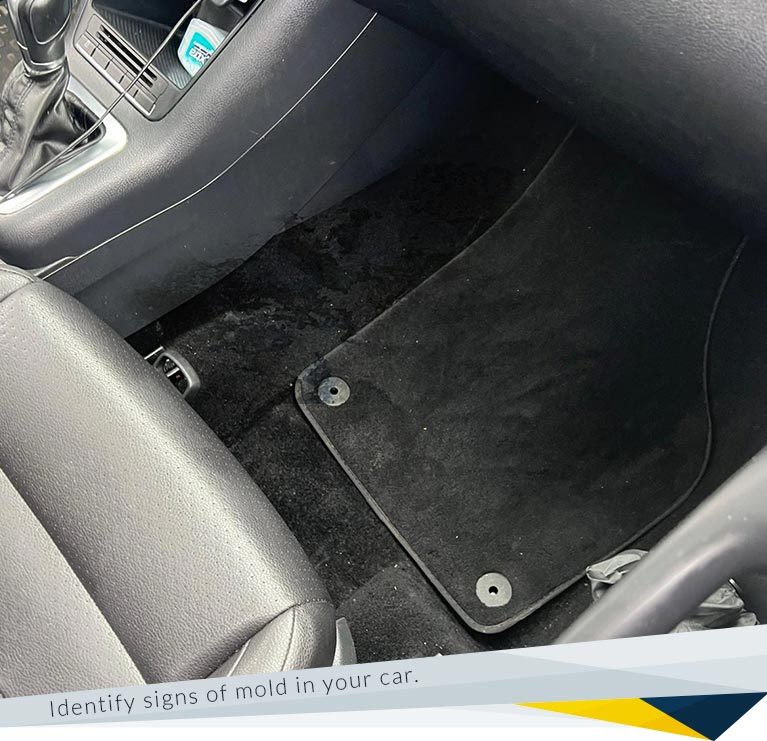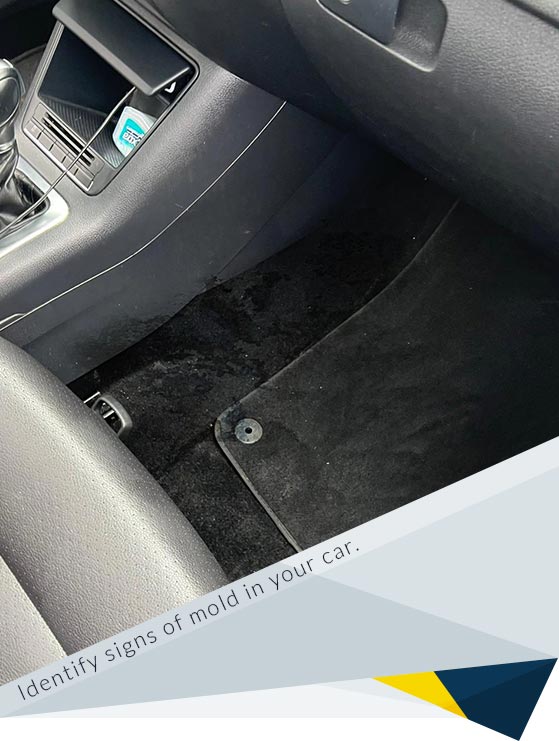
When we think about mold damage, we typically envision old, damp buildings or flood-affected homes. However, an area often overlooked when it comes to mold infestations is our cars. With closed environments and potential for dampness, cars can offer an ideal environment for mold to thrive. Here, we'll explore how to identify, prevent, and treat mold growth in your car.
Mold is a fungus that can grow in various colors, including white, green, black, or brown. In cars, it tends to appear on seats, carpets, vents, steering wheels, and under the floor mats. The early signs can be subtle, but by recognizing these, you can prevent a more significant mold problem.
The first sign you may notice is an unpleasant, musty odor. This smell can persist even after air fresheners or cleaning, which is a strong hint that you may be dealing with mold.
You may also notice fuzzy or slimy discolorations on various surfaces in the car. Small patches of mold can be easy to overlook, so it's essential to inspect your vehicle thoroughly.
If you or your passengers start experiencing allergy-like symptoms when in the car, such as sneezing, coughing, or watery eyes, this could be a sign of mold exposure.

Understanding the causes of mold can help in prevention. Mold in cars usually originates from excessive moisture, often due to the following reasons:
Water leaks from a sunroof, door, or window seal can lead to dampness that, if left unchecked, can promote mold growth.
Leaving food or drinks in the car can attract mold. The organic material provides a food source for the mold, and if left to decompose, it creates a perfect breeding ground for spores.
Placing wet items like clothes, umbrellas, or towels in your car and leaving them can create a humid environment conducive to mold growth.
Prevention is the best defense against mold. Here are some strategies:
If you discover mold in your car, it's essential to act quickly. Small infestations might be manageable with DIY solutions, but for larger or persistent issues, professional help may be necessary.
It's time to call a professional. They have specialized equipment and expertise to effectively remove mold and prevent regrowth.
Uncovering mold in your car isn't a pleasant news. Yet, fear not. Equipped with the knowledge to identify the telltale signs, decipher the underlying reasons, and muster the right course of action, you can be the captain of your ship once again.
Adopting a rhythm of regular cleaning and care is a guarantee of a clear, mold-free vehicle, safeguarding the health and tranquility of your car's cabin.
And if a mold intrusion is spotted, rely on professionals to get rid of mold from your car. The experts at FDP Mold Remediation can help with this, so you can proceed to car repairs.



